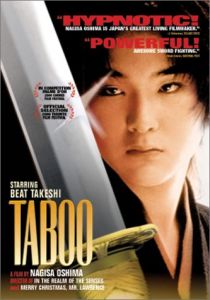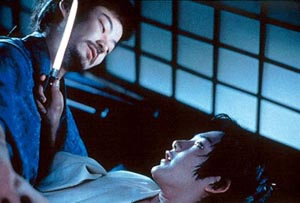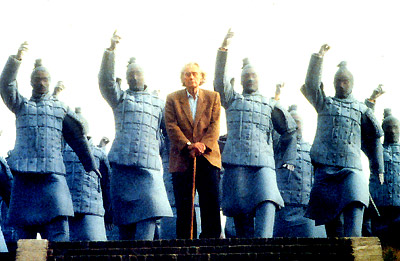Feast From the East [Oshima’s GOHATTO]
This originally appeared in the January 10, 2001 issue of the Chicago Reader. It seems worth reprinting as a kind of adjunct to my overview piece about Oshima, written for Artforum in 2008 and also available on this site. –J.R.
Taboo
****
Directed and written by Nagisa Oshima
With Beat Takeshi (Takeshi Kitano), Ryuhei Matsuda, Shinji Takeda, Tadanobu Asano, and Yoichi Sai.
By Jonathan Rosenbaum
Mark your calendars. Over the next six weeks, the Music Box is offering three eye-popping masterpieces from Asia. This is a welcome sign–-as is the popularity of the breezy Crouching Tiger, Hidden Dragon in the multiplexes–-that American theaters and audiences are finally recognizing that a lot of the best movies come from the other side of the planet and that there’s as much diversity among them as there is among ours.
Yi Yi, which opens March 2, is a three-hour feature set in contemporary Taiwan. It was just voted best picture of the year by the National Society of Film Critics, the first foreign-language picture to receive this honor since Akira Kurosawa’s Ran 15 years ago. Its writer-director, Edward Yang, is one of the two or three undisputed masters of Taiwanese cinema, and the Film Center gave us a full retrospective of his work in 1997. Read more



